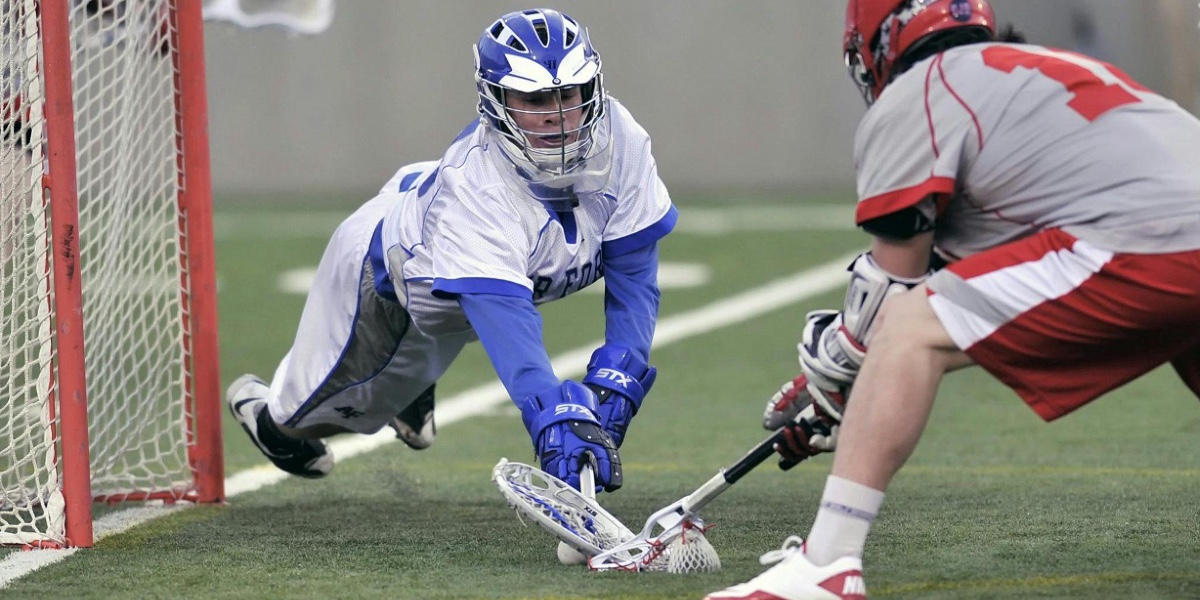Saybrook University offers an online M.S. in Sport Performance Psychology degree program that prepares students to pursue various careers working with athletes, military personnel, musicians, performers, and others in similarly competitive or intense environments. Students in our Sport Performance Psychology program learn to help athletes and performers better understand how their thoughts and mindsets can alter their performance, whether it is in competitive sports, careers, or performing on stage.
What Is Sports Psychology?
Sports psychology is a therapeutic approach that optimizes the well-being and performance of athletes. Sports psychologists address social and developmental factors that function as intrinsic elements in competitive sports and performance-driven environments. These psychological interventions are not limited to benefiting only athletes or performers; rather, they include coaches, parents, and administrators who work in competitive settings.
Graduates of our M.S. in Sport Performance Psychology program learn to design and implement techniques that improve performance for individual athletes and artists, teams, and organizations. This online sport and performance degree prepares students to work with people of all ages, from young to professional athletes, and from various backgrounds, such as military personnel or artistic performers, including musicians and dancers.
Beneficial Skills for Sports Psychologists
A sports psychologist requires an array of skills combining traditional sports medicine with the mind-body sciences of psychophysiology to thoroughly understand how one’s mindset can alter their physical ability and performance levels. These mental health professionals use clients’ biological and mental health to guide counseling applications.
As part of the Sport Performance Psychology master’s degree, several core program courses ensure students learn these skills:
Counseling Intervention
The Counseling Skills and Athletic Counseling course covers a broad range of counseling and consultation theories and their applications, basic and advanced helping skills, client and helper self-understanding and development, and the facilitation of client change. These skills help sports psychologists select from an array of applicable theories, choosing the best approach to helping athletes and artists optimize their performance through mental health techniques and interventions.
Understanding and Analyzing Biofeedback
Basic Training and Education in Biofeedback is an online course that provides students with the skills to conduct simple biofeedback interventions, engaging in biofeedback-based clinical practice and psychophysiological research in integrative health. In other words, this course teaches our graduates how to use a data-driven approach in psychotherapy. The ability to understand and analyze biofeedback results and adjust the patient care plan can be used by sports psychologists for optimal performance training in sports and the arts, and in their own personal transformation.
Applying Physiological Applications
The online M.S. in Sport Performance Psychology includes two courses that provide students with the foundation needed to apply physiological techniques to assist in athletic or artistic performances: The Psychological Aspects of Athletic Injury and Foundations of Sport and Performing Arts Physiology.
The Psychological Aspects of Athletic Injury is a comprehensive course on the mental toll of an athlete receiving treatment or rehabilitation for an injury as well as the issues that follow with return to play delays and progression. This online course will prepare students to develop a psychological rehabilitation program, work for the rehab team, and use counseling techniques to help the athlete adjust to the injury. These practical skills work to improve patient care by ensuring the athlete or performer is receiving both mental and physical treatment while recovering. Focusing on both mind and body care, the athlete is likely to have a smoother transition returning to play.
Foundations of Sport and Performing Arts Physiology focuses on the central nervous system, autonomic nervous system, musculoskeletal system, cardiovascular system, and respiratory system physiology to guide counseling interventions to assist athletes and performers. This course studies the interconnectivity of the mind and body, encouraging students to discuss the practical applications specific to various sports and performing arts.
Why Are Sports Psychologists Important?
Competing in sports or performing arts can offer physical and mental benefits for the individual, including mental toughness, coping mechanisms, and physical fitness. However, despite these benefits, the competitors may still suffer from mental conditions such as stress, anxiety, or depression, which may hinder their performance levels. Sports psychologists learn to recognize the signs of mental distress in athletes and performers while working with teams, groups, and organizations. These mental health professionals also work with individuals through private practice and work with the coaching staff and administrators to integrate mental health practices to reduce unnecessary stress.
Graduates of the Sport Performance Psychology program can pursue other careers and apply these mental health techniques to improve competitive performance, such as becoming a head coach, personal trainer, performance enhancement specialist, professor, or Certified Mental Performance Consultant.
Earn an M.S. in Sport Performance Psychology Degree
The M.S. in Sport Performance Psychology degree from Saybrook University is a stepping stone for prospective sports psychologists seeking to work with professional performers or open their own practice working with individuals or teams. This online degree can benefit future coaches, administrators, trainers, and instructors or assist athletes and performers in achieving optimal performances.
Additional licensing and education are required to become a sports psychologist. Graduates must earn their master’s and doctoral degrees in sports psychology, complete the required practical experience, and obtain licensure from the Association for Applied Sport Psychology. This degree does not automatically make a graduate a sports psychologist but helps build a foundation of physiological knowledge and therapeutic guidance for a sports or sports psychology career.
Whether you want to be a sports psychologist or work in a competitive setting and wish to apply the practical skills taught in the program to your personal and professional life, then apply today and start your journey of utilizing psychology and physiology to enhance performance.



























